Report: Ford Killing Transit Connect

While not as popular as the full-sized Ford Transit, the smaller Transit Connect makes an excellent vehicle for small business owners and families that want something that offers an abundance of cargo space but is still easy to park. Though it doesn't seem that enough of those people existed in North America because the automaker has reportedly opted to make the model a European exclusive after 2023.
According to Automotive News, Ford will discontinue the Transit connect by the end of next year — further shrinking the small van segment in the United States.
With the Nissan NV200 and Chevrolet City Express having previously exited the market, options are getting limited. Mercedes-Benz Vans has recently elected to eliminate the slightly larger Metris as well, perhaps showcasing that the U.S. doesn't have much of an appetite for modestly sized vans. Ford's best year for the Transit Connect was when it sold 52,221 (plus another 2,800 in Canada) in 2015. Since then, the annual volume has gone back and forth between 30,000 and 40,000 units. However, it could certainly be argued that the last couple of years haven't been representative of what anyone would call a normal sales period.
But steadier sales still probably wouldn't have saved Ford's versatile city van. The Transit Connect was already enjoying volumes that weren't too far behind the Ram ProMaster City (which is arguably the better value) and Blue Oval was rumored to be trying to work out a deal to build its successor at the Hermosillo Assembly Plant in Mexico (current Transit Connects come from Europe). Automotive News claimed that the deal had fallen through, with the company figuring it just made more sense to continue building/selling it in Europe while it focuses on electrifying the larger full-size Transit.
Regional tastes may have also played a factor. Americans thinking there's even the faintest possibility of their needing a working vehicle typically run with trucks — which is something I don't think I'll ever truly understand. Just yesterday I had to avoid several unsecured items that fell off the back of a short-bed pickup and my immediate thought was that this never would have been an issue if the guy had been driving a van. However, the reality is that Americans just prefer trucks and I'm obliged to defend their right to own them, regardless of my thinking they're often a poor choice for most people's needs.
That said, none of the above really feels like a valid explanation for giving this little van its walking papers. There's no reason the Transit Connect couldn't have existed alongside Ford's many pickups and its volume in Europe (as the Tourneo Connect) isn't all that impressive vs North America. Perhaps Ford couldn't manage the manufacturing logistics or just didn't think it would be competitive (see: Profitable) moving ahead. As previously stated, the Ram ProMaster City does seem to offer better value for money as a working vehicle, whereas the Transit Connect tends to excel more when it's doing double duty as a people mover and cargo carrier. The problem here is that nicer versions of the Ford tend to be priced dangerously close to the MSRPs of larger minivans that can also do both.
My guess is that the entire segment simply ended up being ill-suited for most of North America. These kinds of vans are great when you're spending most of your time in the city and don't want to deal with something bigger. But the overall market still has a lot of wide-open spaces and trends toward larger products, which is likely why we've seen the segment continue to shrink. Whatever the reason, Ford is assumed to provide its own rationale in the coming days. But the Transit Connect will still be put out to pasture at the end of 2023
[Image: Ford Motor Co.]
Become a TTAC insider. Get the latest news, features, TTAC takes, and everything else that gets to the truth about cars first by subscribing to our newsletter.

A staunch consumer advocate tracking industry trends and regulation. Before joining TTAC, Matt spent a decade working for marketing and research firms based in NYC. Clients included several of the world’s largest automakers, global tire brands, and aftermarket part suppliers. Dissatisfied with the corporate world and resentful of having to wear suits everyday, he pivoted to writing about cars. Since then, that man has become an ardent supporter of the right-to-repair movement, been interviewed on the auto industry by national radio broadcasts, driven more rental cars than anyone ever should, participated in amateur rallying events, and received the requisite minimum training as sanctioned by the SCCA. Handy with a wrench, Matt grew up surrounded by Detroit auto workers and managed to get a pizza delivery job before he was legally eligible. He later found himself driving box trucks through Manhattan, guaranteeing future sympathy for actual truckers. He continues to conduct research pertaining to the automotive sector as an independent contractor and has since moved back to his native Michigan, closer to where the cars are born. A contrarian, Matt claims to prefer understeer — stating that front and all-wheel drive vehicles cater best to his driving style.
More by Matt Posky
Latest Car Reviews
Read moreLatest Product Reviews
Read moreRecent Comments
- Lichtronamo Watch as the non-us based automakers shift more production to Mexico in the future.
- 28-Cars-Later " Electrek recently dug around in Tesla’s online parts catalog and found that the windshield costs a whopping $1,900 to replace.To be fair, that’s around what a Mercedes S-Class or Rivian windshield costs, but the Tesla’s glass is unique because of its shape. It’s also worth noting that most insurance plans have glass replacement options that can make the repair a low- or zero-cost issue. "Now I understand why my insurance is so high despite no claims for years and about 7,500 annual miles between three cars.
- AMcA My theory is that that when the Big 3 gave away the store to the UAW in the last contract, there was a side deal in which the UAW promised to go after the non-organized transplant plants. Even the UAW understands that if the wage differential gets too high it's gonna kill the golden goose.
- MKizzy Why else does range matter? Because in the EV advocate's dream scenario of a post-ICE future, the average multi-car household will find itself with more EVs in their garages and driveways than places to plug them in or the capacity to charge then all at once without significant electrical upgrades. Unless each vehicle has enough range to allow for multiple days without plugging in, fighting over charging access in multi-EV households will be right up there with finances for causes of domestic strife.
- 28-Cars-Later WSJ blurb in Think or Swim:Workers at Volkswagen's Tennessee factory voted to join the United Auto Workers, marking a historic win for the 89- year-old union that is seeking to expand where it has struggled before, with foreign-owned factories in the South.The vote is a breakthrough for the UAW, whose membership has shrunk by about three-quarters since the 1970s, to less than 400,000 workers last year.UAW leaders have hitched their growth ambitions to organizing nonunion auto factories, many of which are in southern states where the Detroit-based labor group has failed several times and antiunion sentiment abounds."People are ready for change," said Kelcey Smith, 48, who has worked in the VW plant's paint shop for about a year, after leaving his job at an Amazon.com warehouse in town. "We look forward to making history and bringing change throughout the entire South." ...Start the clock on a Chattanooga shutdown.



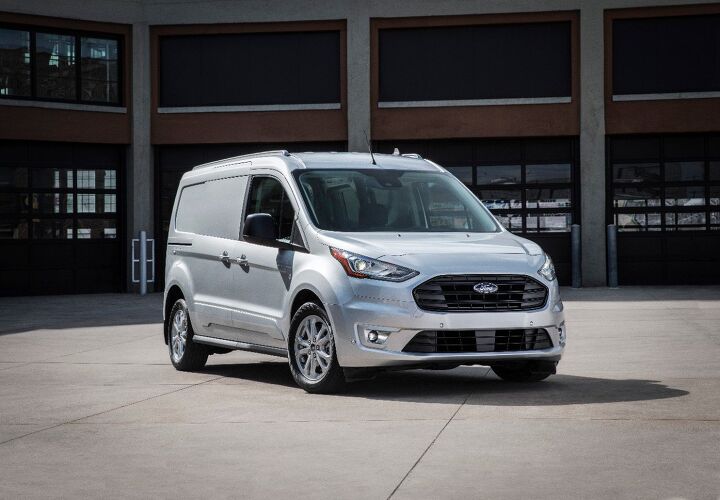















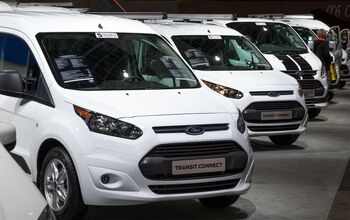
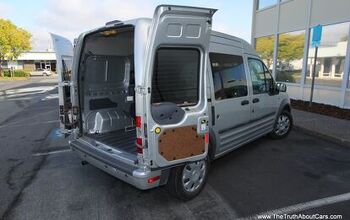
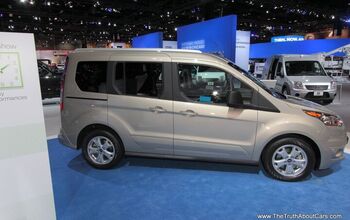
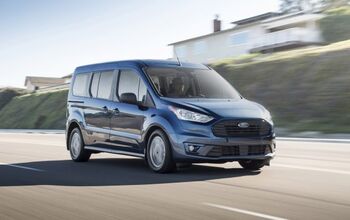
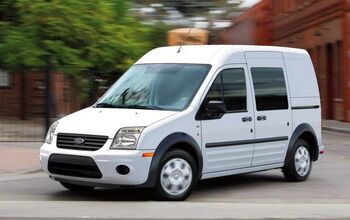






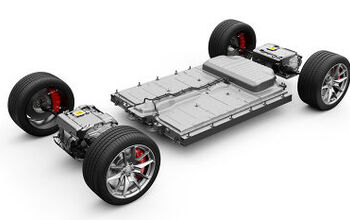



Comments
Join the conversation
I wanted a Transit Connect Wagon as a project-conversion in the worst kind of way after I traded in my old Ford Ranger.
They're really neat little vehicles.
I still want something like that from time-to-time to support my out-standing-in-the-field hobbies (full-scale sailplane flying, RC, and kid-sports). But now it needs to be a BEV that can to tow 6000lbs - so I'll be waiting a while.
What a shame...I have a 2014 Long Wheelbase XLT Transit Connect. Literally best vehicle I've ever owned. 7 passenger, fuel efficient, good driving van that in a pinch all seats fold flat and it has been a great business vehicle (I have a surfboard business) that I've used for deliveries over the past 8 years, and then fold seats up and it's a great around town kid hauler (3 kids here). There is no other combination of efficiency and usefulness as good as this vehicle. I've driven it over 100k miles with zero issues. 125k now on it, bought it in 2015 with 25k on it for $18k. Per Autotrader, it holds its value like crazy, probably only depreciated a few thousand dollars, and likely won't be depreciating much more anytime soon with this news